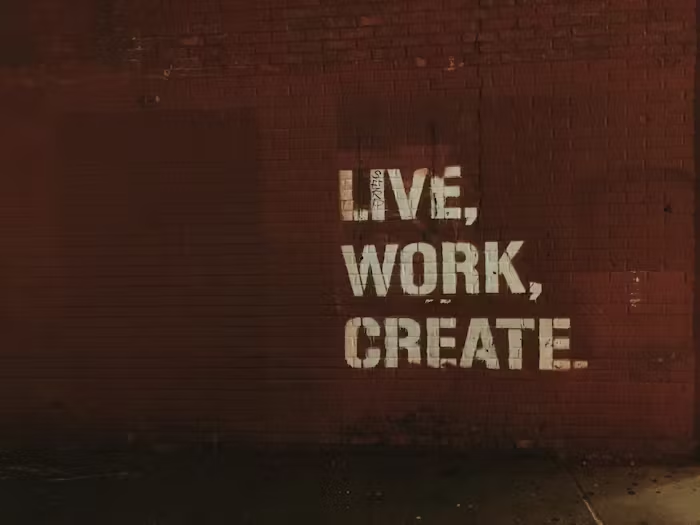Friendships are among the most fulfilling relationships we can experience, providing support, companionship, and a sense of belonging. However, at the core of every strong friendship lies trust — the foundation that holds everything together. Building trust isn’t an overnight process; it’s a journey requiring effort, honesty, and consistency.
In this article, we’ll explore actionable tips for fostering trust in friendships, why it’s essential, and how to maintain it over time. With these strategies, you can build stronger, lasting friendships that thrive on mutual respect and authenticity.
Why Trust Matters in Friendships
Trust is the cornerstone of any meaningful relationship. Here’s why it’s essential:
1. Creates Emotional Safety
When trust exists, friends feel safe sharing their thoughts, emotions, and vulnerabilities without fear of judgment or betrayal.
2. Strengthens Bonds
Trust fosters deeper connections by allowing friends to rely on one another, whether in times of joy or adversity.
3. Encourages Honesty
A foundation of trust makes honesty the norm, encouraging open and sincere communication.
4. Reduces Conflict
Trust minimizes misunderstandings and reduces the likelihood of unnecessary conflicts.

Barriers to Building Trust in Friendships
Before diving into how to build trust, it’s essential to understand common barriers that can hinder the process:
- Inconsistency: Unpredictable behavior can make a friend appear unreliable.
- Dishonesty: Lies, even small ones, can erode trust over time.
- Lack of Communication: Misunderstandings and assumptions can breed mistrust.
- Past Experiences: Previous betrayals can make someone hesitant to trust again.
Understanding these barriers can help you navigate and overcome them as you work on building trust.
10 Tips for Building Trust in Friendships
1. Be Honest and Transparent
Honesty is the bedrock of trust. Be truthful in your interactions, even when the truth is difficult to share. Transparency demonstrates integrity and fosters mutual respect.
Actionable Tip: Share your genuine thoughts and feelings with your friend. Avoid sugarcoating or hiding the truth, as it can lead to misunderstandings later.
2. Keep Your Promises
Reliability is key to building trust. If you commit to something, follow through. Breaking promises can make a friend feel unimportant or undervalued.
Actionable Tip: Only make commitments you can realistically keep. If unforeseen circumstances arise, communicate promptly and apologize.
3. Practice Active Listening
Listening is more than hearing words; it’s about understanding and empathizing with what your friend is sharing. Active listening shows that you value their thoughts and feelings.
How to Practice Active Listening:
- Maintain eye contact during conversations.
- Avoid interrupting.
- Reflect back on what you’ve heard to ensure clarity.
4. Show Empathy
Empathy strengthens trust by demonstrating that you genuinely care about your friend’s experiences. Understanding their perspective fosters emotional intimacy.
Actionable Tip: When your friend is going through a tough time, validate their feelings by saying, “I can see how that would be really difficult.”
5. Be Consistent
Consistency builds reliability, which is a critical component of trust. Friends should know they can count on you in both good and bad times.
Actionable Tip: Check in regularly, even if it’s a simple text or call. Show that you’re present and invested in the friendship.
6. Respect Boundaries
Every friendship is unique, and respecting personal boundaries is essential for trust. Overstepping boundaries can lead to discomfort or mistrust.
Actionable Tip: If a friend shares their limits, honor them without question. For example, if they prefer personal space during stressful times, give them that.
7. Apologize When Necessary
No one is perfect, and mistakes happen. A sincere apology can go a long way in rebuilding trust after a misstep.
How to Apologize Effectively:
- Acknowledge your mistake.
- Express genuine remorse.
- Commit to doing better in the future.
8. Avoid Gossip
Gossiping about mutual friends or sharing private information can destroy trust instantly. Always protect your friend’s confidentiality.
Actionable Tip: If someone tries to gossip about your friend, redirect the conversation or shut it down respectfully.
9. Be Supportive in Tough Times
True friends stick around during challenges. Being there for your friend in moments of difficulty strengthens the bond and builds unwavering trust.
Actionable Tip: Offer a listening ear, practical help, or simply your presence during tough times. Sometimes, just being there is enough.
10. Celebrate Their Successes
Trust isn’t just about being there during hardships; it’s also about celebrating your friend’s achievements. Genuine happiness for their success reinforces mutual support.
Actionable Tip: A simple “I’m so proud of you!” when they achieve a milestone can go a long way in strengthening your bond.
Maintaining Trust Over Time
Building trust is one thing; maintaining it requires consistent effort. Here are some tips to keep the trust alive in long-term friendships:
1. Regular Check-Ins
Life can get busy, but staying connected is crucial. Regularly checking in shows that you value the friendship.
2. Adapt to Change
Friendships evolve as people grow. Being flexible and understanding during transitions — like moving, career changes, or new relationships — helps maintain trust.
3. Continue to Communicate Openly
Even in long-standing friendships, misunderstandings can arise. Prioritize open and honest communication to address any issues promptly.
How to Rebuild Trust After It’s Broken
Even the strongest friendships can experience breaches of trust. Here’s how to rebuild:
- Acknowledge the Breach: Take responsibility for your actions without making excuses.
- Show Genuine Remorse: Apologize sincerely and express your desire to make amends.
- Take Action: Back up your words with consistent actions that demonstrate your commitment to rebuilding trust.
- Be Patient: Rebuilding trust takes time. Allow your friend the space they need to heal.
The Role of Communication in Building Trust
Communication is the glue that holds trust together. Here’s how to use it effectively:
- Express Gratitude: Regularly thank your friend for their support and presence.
- Share Your Thoughts: Open up about your feelings and encourage your friend to do the same.
- Clarify Expectations: Discuss what trust looks like for both of you to avoid misunderstandings.
Real-Life Scenarios: Trust in Action
Scenario 1: The Reliable Friend
- Situation: Sarah forgot her wallet at dinner, and Emily immediately offered to cover the bill without hesitation.
- Outcome: Sarah’s trust in Emily deepened because she knew she could count on her in unexpected situations.
Scenario 2: The Empathetic Listener
- Situation: John confided in his friend Mike about his struggles with anxiety. Mike listened without judgment and offered supportive words.
- Outcome: John felt valued and understood, strengthening his trust in Mike.
How Technology Impacts Trust in Friendships
Technology plays a dual role in modern friendships.
Positive Impacts
- Easier to stay connected through messages and video calls.
- Sharing photos or updates fosters closeness.
Negative Impacts
- Misinterpretation of texts can lead to misunderstandings.
- Overreliance on digital communication may reduce the depth of conversations.
Tip: Balance digital and face-to-face interactions to maintain trust.
Cultural Differences in Trust-Building
Cultural norms influence how trust is built in friendships. In some cultures, trust develops through shared experiences, while in others, it’s rooted in verbal commitments.
Tip: Be mindful of cultural differences and adapt your approach when forming friendships across cultures.
Building trust in friendships is a rewarding process that enriches your life in countless ways. By practicing honesty, consistency, empathy, and active listening, you can cultivate meaningful connections that stand the test of time.
Trust is both a gift and a responsibility. Cherish it, nurture it, and watch your friendships flourish into unbreakable bonds.










